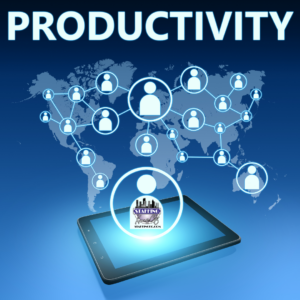
Throughout the year, we’ve seen an interesting push-pull between the human element and the rise of technology in the workplace. There have been numerous examples of companies choosing to downsize and let artificial intelligence (AI) take over some of those cut roles. We see this in action in the rise of self-checkout at the grocery store, and at Target and Walmart, too.
Additionally, job seekers deal with this increasingly as companies look to implement efficiencies, using AI to sift through resumes a human will likely never see. This is finding many opting to create AI-generated resumes in hopes of beating AI at its own game, which will not likely happen.
Engagement Challenges
These examples seem ironic as companies are now calling out the growing issue of employee disengagement. In The Great Disengagement, managers, especially middle managers, often take the blunt responsibility for these varied elements of discord and disengagement.
An article in the Wall Street Journal titled, Generational Shift in the Workplace Creates Challenges for Bosses, highlighted a study that companies find Gen Z difficult to work with. The response to this was a desire to create engagement in the form of mentorship, guidance on communication, and access to on-site therapists in the workplace.
While many of these elements could be beneficial, especially for those who entered the workforce post-pandemic, it also feels a little backward. On the one hand, there’s an ongoing push for technology and AI advancements among many CEOs. These leaders advocate handing off duties to AI yet also expect to see a rise in human-to-human engagement and collaboration, which is often not congruent with the use of an autonomous AI tool.
Such calls for human engagement must also feel a little foreign to a generation like Gen Z who is known for its digital savviness. Perhaps calls for engagement are really part of a much larger issue – the necessity to cultivate soft skills such as communication, teamwork and adaptability, which are critical in life and in the workplace.
Soft Skills Needed
Research from Deloitte indicates roles that require intensive soft skills are expected to grow 2.5 times faster than other job types. In just six years, there are predictions 63% of all jobs will be made up of soft skills roles, highlighting the growing demand for these competencies in the workplace.
Rather than bantering around ideas about how to improve the engagement of Gen Z in the workplace, it might be more effective to focus on building soft skills in all employees. This is certainly more accessible than employees trying to continually reinvent themselves/reskill due to the rapid pace of change in technology. Humans will never be able to keep up with technology, but soft skills can be a great differentiator for humans. The benefit of strengthening soft skills is multifaceted and offers the ability to make important improvements for an individual, their team and the business in general.
